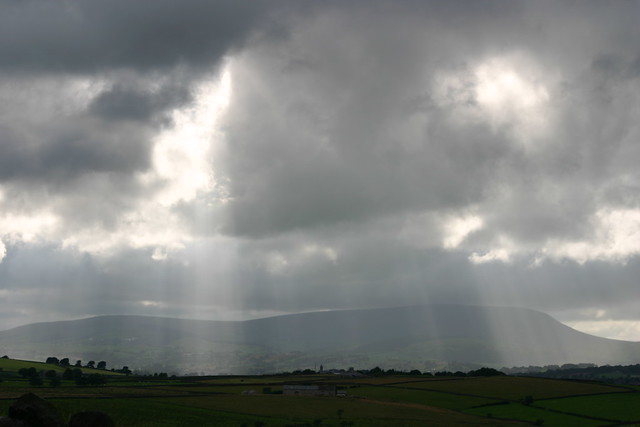
Introduction:
We have traveled over 3,000 years of time in our "bird's-eye view" of the Bible. We first decided to work our way through the Bible by way of major themes. We've journeyed through seven themes so far: Creation, Catastrophe, Flood, Patriarchs, Moses, Victory, Spiritual Defeat. For sake of convenience, I'll list the previous posts dealing with this themes:
1. Theme of Creation in Genesis 1-2.
http://www.growingchristianresources.com/2020/01/birds-eye-view-of-bible-theme-of.html
2. Theme of Catastrophe in Genesis 3-
11.
http://www.growingchristianresources.com/2020/02/birds-eye-view-of-bible-theme-of.html
3. Theme of Patriarchs in Genesis 12-
50.
http://www.growingchristianresources.com/2020/02/birds-eye-view-of-bible-theme-of_9.html
4. Theme of Redemption in the books
of Exodus through Deuteronomy.
http://www.growingchristianresources.com/2020/02/birds-eye-view-of-bible-theme-of_12.html
5. Theme of Spiritual Victory in the
Book of Joshua.
http://www.growingchristianresources.com/2020/02/birds-eye-view-of-bible-theme-of-victory.html
6. Theme of Spiritual Defeat in the
Book of Judges.
http://www.growingchristianresources.com/2020/02/birds-eye-view-of-bible-breaking-sin.html
We secondly observed how God deals with His creation and people by way of covenants. Adam and Eve had broken God's first covenant with them as representatives of all humanity - resulting in all humanity experiencing the curse of sin. God then gave them a covenant of grace which looked ahead to what Jesus would ultimately accomplish on the cross and which is entered upon by faith. It seems like every major figure in Biblical history has a version of the covenant of grace (Abraham, Noah and God saving Israel out of Egypt) to point us ahead to what God would do in Jesus.
We then thirdly noticed that God curbs mankind's sinful wickedness by pointing mankind to his need for God. God had given Adam and Eve original righteousness in their state of innocence, but they rebelled against Him. God then would work through mankind's conscience, teaching them how to govern themselves (during Noah's time), give them promises of hope (beginning with Abraham) and reveal His commandments or law (beginning with Moses). The purpose of each of these stages of history was to test mankind to point them to their need for grace and salvation. The remainder of the Old Testament, from the days of Moses up until the time of Jesus is referred to as the "time" or "age of the Law". As God focuses His salvation purposes through one nation - Israel - we will see Him unfold the next major theme we see in our overview of the Bible: "The Kingdom of God".

1. The sadness of drifting away
from God
We now see Israel, the main people of the Old Testament, in a sad state of spirituality by the end of the Book of Judges. God appointed twelve judges to lead the people back to God. At times the judges succeeded, but most of the time the judges failed God as much as the people. The increasing sadness of spiritual decline would continue through the books of Ruth and 1 Samuel. Just when it seemed all hope is lost, God began to reveal more of His words through a prophet named Samuel. As we will journey through 1st and 2 Samuel into the book of 1 Kings, four main men are featured: Samuel the prophet, King Saul, King David and King David's son - King Solomon.

2. God's kingdom is what rescues
people from drifting away from
Him.
God promised Abraham that from his family bloodline would come forth kings (Genesis 17:6, 16). It is in God's covenant with Abraham we see first glimpses of what the Bible reveals as: "God's kingdom". God's kingdom refers to His ruling, redemptive reign. Bible teacher Dwight Pentecost, in his classic book, "Thy Kingdom Come", describes three characteristics of the kingdom as having: right to rule, a realm to rule and reality to rule.
To summarize much of what Dr. Pentecost wrote about the kingdom of God, we first see that God has the right to rule, since He is Creator of the world and Redeemer of His people. God had done a lot for Israel, making her from a group of slaves in Egypt into a nation established in the promised land. Despite the people's repeated failures, God was going to bring about His promise to Abraham. Israel would transition from being a nation with no king and kingdom to becoming a very powerful kingdom.
We then also note that God's kingdom also refers to a realm or area over which He reigns. His Kingdom is ultimately over the universe. What God does to communicate His right to reign is to take His people and develop a relationship with them - which describes the focus of the realm of His reign. Under the leadership of Kings Saul, David and Solomon, the people would have 120 years of experiencing what it was like to have a human king. God had revealed through Samuel and other prophets that He was Israel's True King, and that the human kings (Saul, David, Solomon) were established by him to lead the people.
We then note thirdly that God not only has the right to reign, and a realm, but also really is King. The kingdom of Israel under Saul, then David and Solomon, had united together all the twelve tribes of Israel. Israel as a physical, earthly kingdom in the Old Testament, was to point the way to the True King of Kings - the LORD - and His heavenly Kingdom. We could say much about all that went on during this time, especially with regards to King David.

David was God's choice man to succeed King Saul (1 Samuel 15). When Saul was killed in battle, David was installed as King over Hebron (2 Samuel 2) and then all of Israel (2 Samuel 5). God gave David a covenant which included the promise of an ultimate heir to reign on the throne attached to His name for eternity (2 Samuel 7:13-16). David would eventually experience moral failure (2 Samuel 11) and experience the death of many of his sons, grief and sorrow. Still, God never left David. We know David would compose at least half of the psalms records in the Book of Psalms. By the end of 2 Samuel, we find David on his death-bed, trust God and looking ahead to the promise God gave Him of an ultimate heir. God's kingdom promises held David in his faith.
3. God's kingdom is revealed in
stages.
As we sketched the life of David and the history of Israel's kingdom beginning with Saul, then David and other kings, we can note how this theme of "God's kingdom" unfolds in successive stages through the Bible.

a. God's ruling redemptive reign is
in one sense eternal, before
creation.
We know already that the kingdom of God is in one sense eternal, since God knew all things in His mind before He created creation. God then made known His eternal kingdom to Adam and Eve, who were to assist God in reigning over the creation and tending to it (see Genesis 1:26-27).
B. God's kingdom has been in war
with the Kingdom of darkness.
As a result of the fall, the kingdom of authority of Adam of Eve was interrupted. Another lesser kingdom, the kingdom of Satan, entered into the picture. We find God teaching humanity the principles of government which would lead to the formation of the kingdoms of men (see Genesis 9-10). Sadly, the kingdom of Satan would mix with the kingdoms of men to form what would be otherwise known as this worldly system - typified in the Tower of Babel catastrophe in Genesis 11.

C. God's Kingdom became revealed
as a promise through the
covenants.
God's kingdom never went away despite Satan's best efforts. What God did in Genesis 12 is turn His attention from the kingdoms of men to one man - Abraham. God would gradually reveal His Kingdom by the route of promises and covenants. As we then come to people like King David, we discover God wanted to see one nation - Israel - function as a model for His heavenly Kingdom. Israel's story throughout the remainder of the Old Testament would end just like Adam and Eve: brokenness, sin and destruction. However, God's kingdom would point ahead to the coming of Himself in the Person of the Son, who would become man and reveal Himself as the true King.

D. The kingdom of God is presently
a spiritual reality.
The Kingdom of God, primarily a Heavenly and spiritual reality, is proclaimed by Jesus and then His church. The time will come though whenever the kingdom of God - a primary spiritual reality, will become visible and earthly at Jesus second coming.

E. The kingdom of God will come with Jesus as a revealed, physical reality.
As I understand Revelation 20 and other passages, the earthly phase of Jesus future reign upon the earth (what we call "the millennium"), will endure 1,000 years. The final stage of God's kingdom will occur when Jesus hands over all things to the Father (1 Corinthians 15:23-28).

F. The kingdom of God will endure
for eternity.
As one peers into the final two chapters of the Book of Revelation, it is there we see the Kingdom of God in its eternal state, having overcome both the kingdom of Satan and the kingdoms of this world (Revelation 11:15; Revelation 21-22).
So what?
This theme of "the kingdom of God" has direct bearing on all people. For those who have not yet trusted in Jesus, they currently are under the dominion of the Kingdom of darkness (2 Corinthians 4:1-4; Ephesians 2:1-2). What is needed is for such persons to belief, repent and be saved from their sins and God's wrath and to turn to Jesus by faith, resulting in a transfer from the kingdom of darkness to the Kingdom of God's wonderful light (John 5:24). We know that the kingdom's of this world, though by-and-large influenced by the kingdom of darkness, are still used by God to uphold and make the laws which govern our cities and nations (Romans 13:1-2).
Truly then, there is no facet of physical life nor spiritual life that is not somehow touched by the kingdom of God. Is it no wonder then that next to Jesus' predictions of His crucifixion and resurrection, no greater theme summarized His earthly ministry and preaching like the Kingdom of God. Unless we grasp what we are talking about when we speak of the kingdom of God, we won't see how Jesus is the true King.







